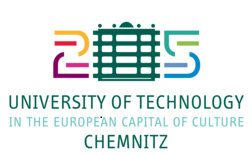The Effect of Cognitive Behavioral Therapy-Based Psychoeducation on Irrational Beliefs, Expressing Emotions, and Mental Well-Being
DOI:
https://doi.org/10.71514/jssal/2025.162Keywords:
Cognitive behavioral, psychoeducation, irrational belief, emotional expression, well-being.Abstract
The study aimed to measure how irrational beliefs, emotional expression, and mental well-being levels of high school student participants changed following the psychoeducation intervention. A pre-test–post-test control group experimental design without pairing was used as the research model. Data was collected from twenty high school students, ten in the control group and ten in the experimental group. The Personal Information Form, the Irrational Beliefs Test (IBT), the Emotional Expression Scale (EES), and the Warwick-Edinburgh Mental Well-Being Short Form (WEMWBS) were used in the study. The psychoeducation consisted of eight semi-structured sessions, each lasting 90 minutes. The dataset was analyzed using repeated measures ANOVA with a mixed design. The findings indicate that the level of irrational beliefs in the experimental group decreased significantly more than in the control group. Significant differentiation was observed in the sub-dimensions of approval-seeking and emotional irresponsibility. However, no statistically significant difference was found for the other two variables. The findings of the study were discussed in relation to the relevant literature, and recommendations were provided for researchers and practitioners.
Downloads
References
Aksoy, Ö. N. (2020). Investigation of adolescents' social emotional learning levels. Journal of Human and Social Sciences, 3(1), 576-590. https://dergipark.org.tr/en/pub/johass/issue/54512/710512
Atay, A. (2018). The effect of perceived emotion expression from the family on emotional expression and psychosocial adjustment in adolescents (Unpublished Ph.D. Thesis). Istanbul University. https://dergipark.org.tr/en/pub/johass/issue/54512/710512
Aydın, A., & Özyürek, A. (2024). The Relationship Between Adults' Ability to Express Their Emotions and Childhood Experiences and Determination of Influencing Factors. 19 May Journal of Social Sciences, 5(2), 110-123. https://dergipark.org.tr/en/pub/19maysbd/article/1356380
Bendit, A. L. (2022). The effects of CBT on perfectionism, help-seeking, negative affectivity, and social-emotional well-being on early college high school students (Doctoral dissertation, Florida Atlantic University). https://search.proquest.com/openview/c2f95a2d43aa0d5eab265ebe7d3a2e31/1?pqorigsite=gscholar&cbl=18750&diss=y&casa_token=N6Gq_rZCt7IAAAAA:LG7IpkEURU5CWUhXzW-NG05wztpaewI_CEUxXGgPVBlFqKKShRlI9G52dM7r0-SPlJYBm0gluCY
Buzlu, D. S., & Şişman, F. N. (2016). Effect of emotion-based education program on nursing students' ability to recognize, express and empathize with emotions. http://nek.istanbul.edu.tr:4444/ekos/TEZ/54746.pdf
Büyüköztürk, Ş., Akgün, Ö. E., Demirel, F., Karadeniz, Ş., & Çakmak, E. K. (2015). Scientific research methods. https://depo.pegem.net/9789944919289.pdf
Chahar Mahali, S., Beshai, S., Feeney, J. R., & Mishra, S. (2020). Associations of negative cognitions, emotional regulation, and depression symptoms across four continents: International support for the cognitive model of depression. BMC psychiatry, 20, 1-12. https://link.springer.com/article/10.1186/s12888-019-2423-x
Chaves, C., Lopez-Gomez, I., Hervas, G., & Vazquez, C. (2017). A comparative study on the efficacy of a positive psychology intervention and a cognitive behavioral therapy for clinical depression. Cognitive therapy and research, 41, 417-433. https://idp.springer.com/authorize/casa?redirect_uri=https://link.springer.com/article/10.1007/s10608-016-9778 9&casa_token=XuI2yPobXw0AAAAA:Ff9dCzzaxf1y1NxLUGEfgp21oNBQWjqssLIF8Z6XB-xHXrT8XHairijFRak_-b2xhywYEbQ7Dhjg38Plyw
Chen, S., Fu, T., Wang, Y., & Sun, G. (2024). Childhood trauma, psychache, and depression among university students: a moderated mediation model. Frontiers in Psychiatry, 15, 1414105. https://www.frontiersin.org/journals/psychiatry/articles/10.3389/fpsyt.2024.1414105/full
Cohen, P. A. (1987). A critical analysis and reanalysis of the multisection validity meta-analysis. https://eric.ed.gov/?id=ED283876
Demir, S. (2022). Comparison of normality tests in terms of sample sizes under different skewness and Kurtosis coefficients. International Journal of Assessment Tools in Education, 9(2), 397-409. https://dergipark.org.tr/en/pub/ijate/article/1101295
Demirtaş, A. S., & Baytemir, K. (2019). Adaptation of the Warwick-Edinburgh Mental Well-Being Scale Short Form into Turkish: A Validity and Reliability Study. Electronic Journal of Social Sciences, 18(70), 689-701. https://dergipark.org.tr/en/pub/esosder/issue/43078/432708
Eadeh, H. M., Breaux, R., & Nikolas, M. A. (2021). A meta-analytic review of emotion regulation focused psychosocial interventions for adolescents. Clinical child and family psychology review, 24(4), 684-706. https://idp.springer.com/authorize/casa?redirect_uri=https://link.springer.com/article/10.1007/s10567-021-00362-4&casa_token=Z7yfgx4hEbIAAAAA:zvWvjbBplghIv97SIa7bRLiELJwaijzgDyIdyjWfqG3z6kl2VJI-W98DEeCAkN7y-yRN43rwuNNrtiNIMA
Freud, S. (2009). The restlessness of civilization. Metis Publications.
Geschwind, N., Arntz, A., Bannink, F., & Peeters, F. (2019). Positive cognitive behavior therapy in the treatment of depression: A randomized order within-subject comparison with traditional cognitive behavior therapy. Behaviour research and therapy, 116, 119-130. https://www.sciencedirect.com/science/article/pii/S0005796719300464?casa_token=_KRGS9XnKLkAAAAA:BYPq_aR40A9YL4t5yzx19K1Zs5T7P1GiQdEdbrz9bfqebeO1etI6cNME9uoz2_CRtwh1OrCpgLc
Gordon, E., & Kenny, M. (2018). Group work in psychiatric/mental health nursing: The case for psychoeducation as a means to therapeutic ends. European Psychiatric/Mental Health Nursing in the 21st Century: A Person-Centred Evidence-Based Approach, 269-282. https://link.springer.com/chapter/10.1007/978-3-319-31772-4_21
Greenberg, L. S., & Goldman, R. N. (2019). Theory of practice of emotion-focused therapy. https://psycnet.apa.org/record/2018-48202-003
Hale, S., & Cowls, J. (2015). Psychoeducational groups. International handbook of occupational therapy interventions, 509-518. https://link.springer.com/chapter/10.1007/978-3-319-08141-0_34
İşleroğlu, S. (2012). Prediction of subjective well-being in high school students according to self-esteem, expectation of social competence and tendency to express emotions. Ege University Institute of Social Sciences, Department of Psychological Counseling and Guidance]. Smyrna. https://tez.yok.gov.tr/UlusalTezMerkezi/tezDetay.jsp?id=aW6tF03dIDFAv90rOEu20A&no=HXp0Xf9BDRFaAHfe3YIu8g
Jones, R. G. (1968). A factored measure of ellıs'ırratıonal belıef system, wıth personalıty and maladjustment correlates. Texas Tech University. https://search.proquest.com/openview/80bdf7764871676038618fe730879e2d/1?pq-origsite=gscholar&cbl=18750&diss=y&casa_token=bThVhfwN_-wAAAAA:MCFKJz923WPRENr5UOcRg_fS_v90Hi8sfQ9ujL3sisxlJ8zQJTLNRnGU5VyD09o9BAvqf8DMMvg
Kaval, N. O., & Sutcu, S. T. (2016). Effectiveness of cognitive-behavioral group therapy in the treatment of social anxiety disorder in children and adolescents: A systematic review. Current Approaches in Psychiatry, 8(1), 3-22. https://dergipark.org.tr/en/pub/pgy/article/133516
King, L. A., & Emmons, R. A. (1990). Conflict over emotional expression: psychological and physical correlates. Journal of personality and social psychology, 58(5), 864. https://psycnet.apa.org/fulltext/1990-25289-001.html
Kuyumcu, B., & Güven, M. (2012). Türk ve İngiliz üniversite öğrencilerinin duygularını fark etmeleri ve ifade etmeleri ile psikolojik iyi oluşları arasındaki ilişki. Gazi Üniversitesi Gazi Eğitim Fakültesi Dergisi, 32(3), 589-607. https://dergipark.org.tr/en/pub/gefad/issue/6734/90519
Kuzucu, Y. (2006). The effect of a psycho-education program on recognizing and expressing emotions on university students' emotional awareness levels, tendency to express emotions, psychological and subjective well-being. https://tez.yok.gov.tr/UlusalTezMerkezi/tezDetay.jsp?id=iBHOyjZuYvMrbk0fWnFmSA&no=jK8U7bySxdEiwgjgaaLOAA
Kuzucu, Y. (2011). Adaptation of the emotional expression questionnaire: Validity and reliability studies. Kastamonu education journal, 19(3), 779-792. https://dergipark.org.tr/en/pub/kefdergi/issue/49049/625719
Mercan, N., Bulut, M., & Yüksel, Ç. (2023). Investigation of the relatedness of cognitive distortions with emotional expression, anxiety, and depression. Current Psychology, 42(3), 2176-2185. https://idp.springer.com/authorize/casa?redirect_uri=https://link.springer.com/article/10.1007/s12144-021-02251-z&casa_token=e0_FpvQiXqIAAAAA:C90QFUHj7tRU1GGIFvO-ByjNxCPSU0B16zhgtebZ19dzbBgdcrvytS3N7ijmrSMNzjymmdgRyOEY10OTJw
Modi, H. H., Davis, M. M., Troop Gordon, W., Telzer, E. H., & Rudolph, K. D. (2023). Need for approval and antisocial behavior moderate the effect of socioemotional cues on adolescent girls’ cognitive control. Child development, 94(2), 529-543. https://srcd.onlinelibrary.wiley.com/doi/abs/10.1111/cdev.13875
Oguz, E. N. (2019). The relationship between self-reflection and insight, expression of emotions, emotional schemas and psychological well-being in adults and its examination in terms of various demographic variables (Master's thesis, Institute of Social Sciences). https://tez.yok.gov.tr/UlusalTezMerkezi/tezDetay.jsp?id=EH3b6WY3m9zsBif_rNgy2w&no=LS6iXJSUyGvp_fgbfvUhFA
Önder, F. C., & Ayazseven, Ö. C. (2020). Aggression in adolescents: The role of emotion regulation and emotional coping. Kastamonu Education Journal, 28(3), 1198-1208. https://dergipark.org.tr/en/pub/kefdergi/article/726258
Öztürk, Ş. (2023). The effect of a distance-delivered mindfulness-based psychoeducation program on the psychological well-being, emotional intelligence and stress levels of nursing students in Turkey: a randomized controlled study. Health Education Research, 38(6), 575-586. https://academic.oup.com/her/article-abstract/38/6/575/7330821
Scheff, T. J., & Bushnell, D. D. (1984). A theory of catharsis. Journal of Research in Personality, 18(2), 238-264. https://www.sciencedirect.com/science/article/pii/0092656684900321
Suveg, C., Kendall, P. C., Comer, J. S., & Robin, J. (2006). Emotion-focused cognitive-behavioral therapy for anxious youth: A multiple-baseline evaluation. Journal of Contemporary Psychotherapy, 36, 77-85. https://idp.springer.com/authorize/casa?redirect_uri=https://link.springer.com/article/10.1007/s10879-006-9010-4&casa_token=mL2GPGOEWsYAAAAA:BWGs-cMjRE09fk8-2blGkNrU0UoIlrJG2DMqVeU11FZFxGSpGmvuu9vfB3gvDmIdeWrbrdiZ3zqwN30pHw
Tabachnick, B. G., Fidell, L. S., & Ullman, J. B. (2013). Using multivariate statistics (Vol. 6, pp. 497-516). Boston, MA: pearson. https://www.pearsonhighered.com/assets/preface/0/1/3/4/0134790545.pdf
Tennant, R., Hiller, L., Fishwick, R., Platt, S., Joseph, S., Weich, S., ... & Stewart-Brown, S. (2007). The Warwick-Edinburgh mental well-being scale (WEMWBS): development and UK validation. Health and Quality of life Outcomes, 5, 1-13. https://link.springer.com/article/10.1186/1477-7525-5-63
Tsai, J. L., & Clobert, M. (2019). Cultural influences on emotion: Established patterns and emerging trends. In D. Cohen & S. Kitayama (Eds.), Handbook of cultural psychology (2nd ed., pp. 292–318). The Guilford Press. https://psycnet.apa.org/record/2019-00292-011
Türkçapar, M. H., & Sargın, A. E. (2012). Bilişsel davranışçı psikoterapiler: tarihçe ve gelişim. Bilişsel Davranışçı Psikoterapi ve Araştırmalar Dergisi, 1(1), 7-14. http://jcbpr.org/storage/upload/pdfs/1708430845-tr.pdf
Ulusoy, Y., & Duy, B. (2013). The effect of psycho-educational practice of learned optimism on learned helplessness and irrational beliefs. Educational Sciences in Theory and Practice, 13(3), 1431-1446.
Varol, C. (2018). Investigation of the effect of training in interpersonal psychotherapy on subjective happiness, empathy, expression of emotions and experiences in close relationships (Unpublished master's thesis). Üsküdar University, Istanbul. https://www.academia.edu/download/37322532/OGRENILMIS_IYIMSERLIK.pdf
Voltan-Acar, N. (2015). Group counseling: Principles and techniques (11th ed.). Ankara: Nobel Publications.
Vural, B. S., & Yaycı, L. (2023). Investigation of the Effectiveness of the Anger Management Skills Psychoeducation Program for High School Students Based on Cognitive Behavioral Therapy. Online Submission, 8(4), 69-89. https://eric.ed.gov/?id=ED638078
Yıldız, M., & Eldeleklioğlu, J. (2020). The relationship between the attitudes of Turkish university students towards dating violence with risk-taking behaviors, emotion regulation and emotional autonomy. OPUS International Journal of Society Researches, 15(23), 1574-1600. https://dergipark.org.tr/en/pub/opus/article/640113
Yılmaz, B. Ş., & Duy, B. (2013). Effectiveness of a psycho-education application on self-esteem and irrational beliefs of female college students. Turkish Psychological Counseling and Guidance Journal, 4(39), 68-81. https://dergipark.org.tr/en/pub/tpdrd/issue/21459/229765
Yurtal-Dinç, F. (1999). Investigation of irrational beliefs of university students according to some variables. Unpublished Ph.D. Thesis). Gazi University/Institute of Educational Sciences, Ankara. https://tez.yok.gov.tr/UlusalTezMerkezi/tezDetay.jsp?id=MwFyUucbZ7E2h_n0SljQzQ&no=MwFyUucbZ7E2h_n0SljQzQ
Downloads
Published
How to Cite
Issue
Section
License
Copyright (c) 2025 Elif Gök, Mustafa Uslu

This work is licensed under a Creative Commons Attribution-NonCommercial 4.0 International License.
The work is made available under the terms of the Public Offer and the Creative Commons Attribution 4.0 International License (CC BY 4.0). This license allows anyone to reproduce, distribute, and adapt the material in any medium or format, including for commercial purposes, provided that proper credit is given to the creator(s) and the original source.












